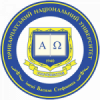Humanitarian Crisis of Civilization in the Context of Russian Aggression: Discursive-Cultural and Mental-Worldview Aspects
DOI:
https://doi.org/10.15330/jpnu.9.2.79-86Keywords:
culture, mentality, information warfare, society, manipulation, logosphere, Russian aggressionAbstract
There are various angles one can view the military aggression of Russia against Ukraine and the entire civilized world from: political, historical, economic and other, yet it can also be considered in a much larger framework – mental and cultural. This aspect is the least discussed in the scientific circles; however, it is impossible to understand the essence of geopolitical processes disregarding the given segment of the modern world picture. This paper deals with an analysis of the worldview model of an average citizen of the Russian Federation, and they account for about 80 percent of the ethno-demographic array; it also extrapolates intellectual reflections to the European socio-cultural space. The research revolves around such basic impact factors as language, communication, media space, and society. The whole century of constant information interventions, methodically carried out by the political and propaganda industry from the territory of Russia, resulted in the appearance of a specific mental and worldview space. Its common representative’s mentality and reality perception characteristically is invariably clouded by the following elements: the lack of trust to any other nation (we talk about cultural phenomena here), groundless self-admiration, understanding of personal helplessness, irresponsibility, following a totalitarian leader and his utopian ideas. In this realm, one can find an explanation for the low ethical level and lack conscience of the common citizen of the Russian Federation, his petty worldview, cruelty and antagonism towards the Ukrainian people. All the social-mental characteristics of the Russian nation serve to prove the deep crisis of the spiritual sphere and the agony of the "Russian world" as such. Its desperate lunges towards independent Ukraine, other post-Soviet republics, and the civilized world in general are in fact a manifestation of collective mental disorders, they contain metastases aimed at fairly marginalized segments of the Eurasian reality and make up a recurring phenomenon.
In his research, the author relies on the interfield material in social sciences and humanities, on the analysis of communicative behavior of political leaders and representatives of the cultural and scientific elite of modern Russia, on media products of propaganda channels, on the content of social networks, etc. The article introduces the typology of the main characterological features of the modern Russia mental space.










